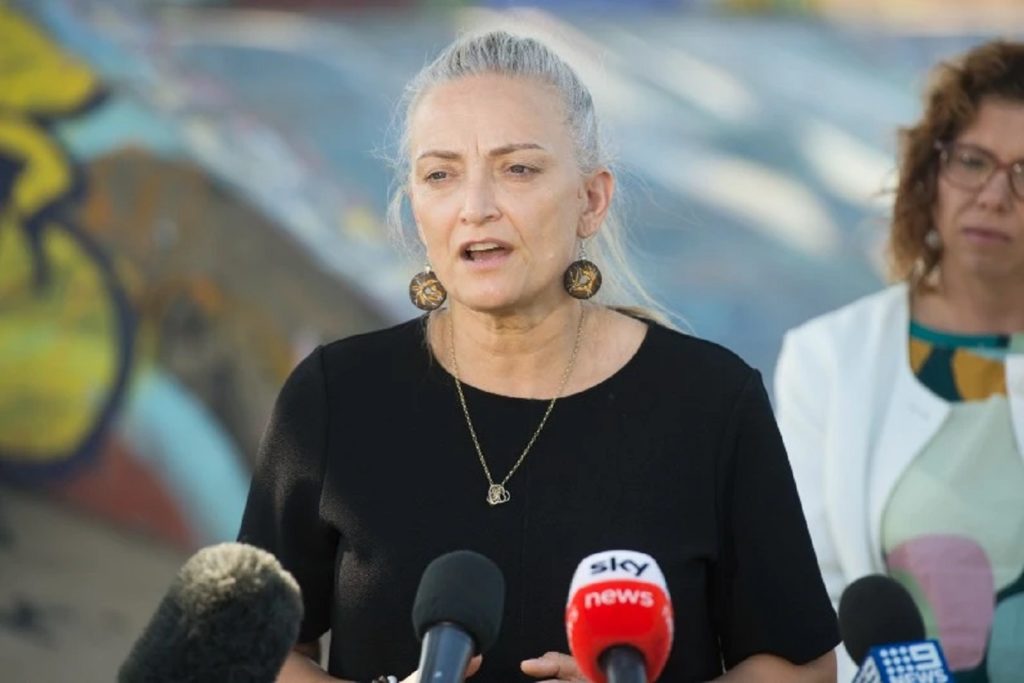The bodies of a 40-year-old Indigenous woman and her infant child were found in Alice Springs on Sunday in an alleged domestic violence incident.
Now the Northern Territory’s police minister, Kate Worden, is calling out the lack of media attention saying that if this incident had happened to a white woman and a baby on the east coast, it would have been front page news around the country
Worden says she is heartbroken, and that too often the nation does not grieve the deaths of Indigenous women in the same way it grieves other deaths.
Despite a critical need for domestic violence funding in the Northern Territory, Worden said this media silence is a contributing factor on the lack of funding being provided.
“We have the capability to stop this [domestic violence]. We have the capability as a community to say no more to this. But we need to work together and we need more funding,” she says.
According to the NT Government data, Indigenous women in Australia experience some of the highest rates of violence of any population in the world. The Northern Territory, in particular, experiences the highest rates of domestic and family violence of any jurisdiction in Australia, and domestic violence accounts for more than 60 per cent of NT Police call-outs.
Worden, who is also the minister for domestic violence, has repeatedly called for the territory’s share of the national domestic violence funding pool to be calculated on need instead of population.
The deaths of the woman and her child should be attracting more national attention, but unfortunately, it’s all too common for the deaths of Indigenous women to go under the public radar.
“Noongar Human Rights Lawyer, Hannah McGlade, says, “We should be really publicly grieving, we should be publicly angered every time another woman loses her life in Australia, and it’s particularly important following the deaths of Indigenous women.”
Dr. McGlade is a member of the UN Permanent Forum for Indigenous Issues and has co-authored a detailed case-study on the topic, that digs deeper into what she calls, “Indigenous femicide.”
The term “femicide” is used to underline that the incidence of Indigenous women’s deaths is not accidental or random, but a systematic outcome of the logic of settler colonialism.
NPY Women’s Council has estimated that Aboriginal women in Central Australia are around 60 times more likely to be victims of domestic homicide than non-Aboriginal women. Dr McGlade adds that this demographic experiences the highest rates of murder in the country.
Both are concerning statistics emphasising the importance of media acknowledgement to ensure that violence is held to account and that every woman’s life is treated as valuable.
At an outstation, 25 kilometres north of Alice Springs, the body of a man and a gun were also found nearby the woman and her child.
The police have called the deaths a domestic violence incident but have not confirmed whether the gun was used to kill the victims or if the officers are investigating the deaths as a murder suicide. Worden couldn’t confirm if the man involved was the perpetrator but said it was an “absolute tragedy.”
Alice Springs based domestic family and sexual violence researcher for ANU, Chay Brown, says it’s imperative for details of the incident to be released to the media. She thinks it’s important to allow the nation to grieve collectively and send a message that “the community does not tolerate acts of violence.”
There are other details that have not been confirmed either, such as the identities of the victims, whether or not anyone involved in the incident had a history of domestic violence or if the gun found near the bodies was registered.
Nevertheless, Worden reminds people that the police have processes in place to maintain the integrity of the investigation and that details of the incident are not required for the story to be a national concern.
Calling out the lack of press on the incident as a whole, Worden didn’t hold back, saying, “If it’s a race-based issue, then let’s call it as it is. This is an Aboriginal family. They are Territorians. And they have been subject to domestic violence.”
If you or someone you know is in immediate danger, call 000.
If you need help and advice, call 1800Respect on 1800 737 732, Men’s Referral Service on 1300 766 491 or Lifeline on 13 11 14.


